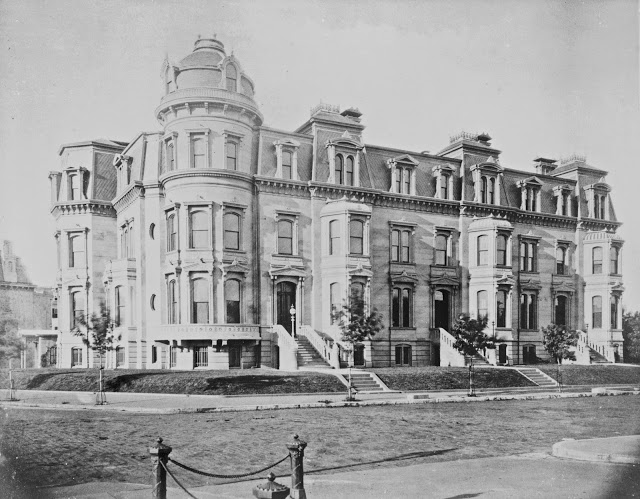
Following the Civil War, many members of Congress called for the seat of federal government to move west of the Mississippi River. Their demand was largely due to westward expansion of the country, as well as the lack of infrastructure in Washington, which still had dirt roads and wild animals roaming the streets. Since Congress moved the capital from New York City in 1790, no serious investments in public works had occurred.
On February 21, 1871, President Ulysses Grant signed the District of Columbia Organic Act, creating the territory of the District of Columbia. The Organic Act merged Georgetown and the city of Washington into one jurisdiction. Alexander Robey Shepherd, a local real estate developer, became the first vice chair of public works and spearheaded an effort to improve the new territory. Shepherd (a.k.a. Boss Shepherd) would ultimately become known as the “Father of Modern Washington,” serving as the Governor of Washington, D.C. from 1873 to 1874.
Shepherd modernized the city. He filled in the Washington Canal–now Constitution Avenue–an empty waterway constructed before the advent of railroads. Additionally, he placed 157 miles of paved roads and sidewalks, 123 miles of sewers, and 30 miles of water mains. He also built the first public transportation system in the form of horse-drawn streetcars.

After he became governor, his improvements turned excessive and the city went bankrupt. Shepherd spent three times more than originally allocated, while steering contracts to his personal plumbing company to benefit himself and his cronies.
Shepherd eventually filed for personal bankruptcy in 1876, and moved to Mexico where he made a fortune in silver mining. He died in 1902.
The territorial government ended in 1874 and Congress would control Washington, D.C. with a three-member board for nearly a century. It was not until 1973 that Washington, D.C would have direct control over its finances and public works.
The legacy of Shepherd remains mixed. Under his leadership, the city fell into dire financial shape but did experience a housing boom. Washington, D.C. became a desired winter residence for many wealthy figures in the late 19th Century. It was dubbed the “winter Newport.”
A statue of Shepherd now sits in front of the John A. Wilson building on Pennsylvania Avenue.
